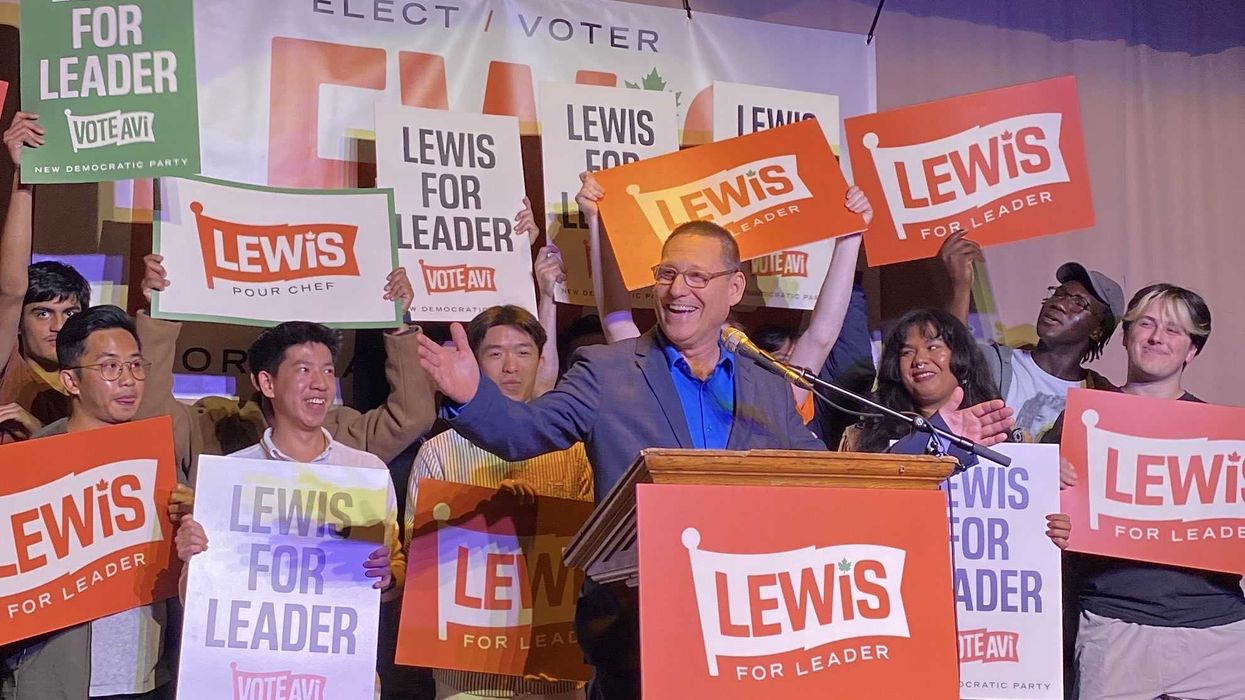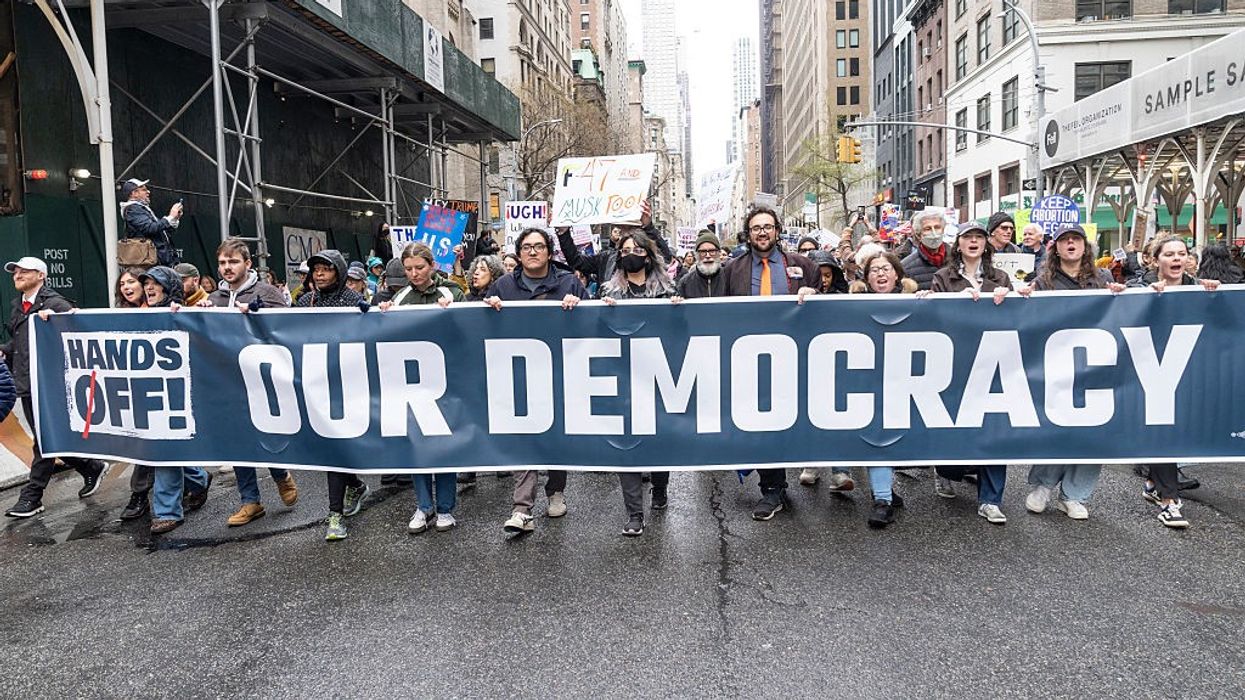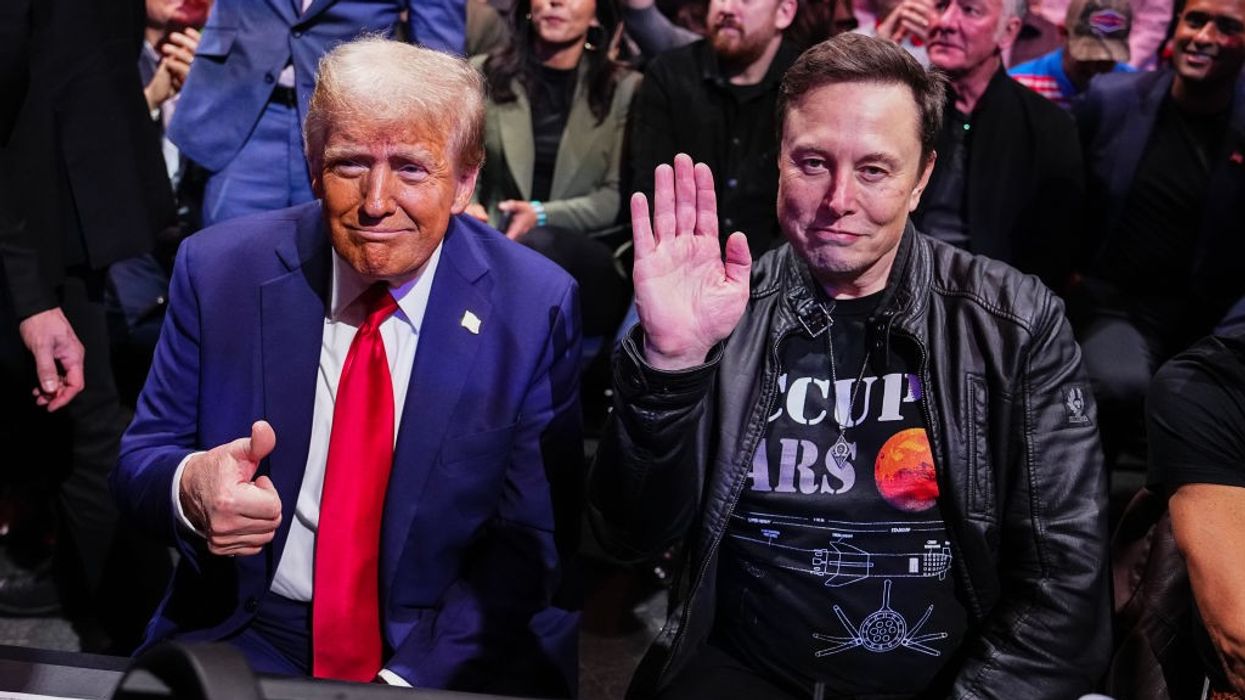Progressive Activist Avi Lewis Launches Bid for NDP Leadership in Canada
Lewis said NDP must “fling the doors wide open, and build a party for the 99%.”
The longtime progressive activist Avi Lewis officially launched his bid for leadership of Canada's New Democratic Party, which he aims to revitalize with a platform of economic populism.
Lewis, a journalist and documentarian whose grandfather helped to found the NDP in 1961, says the way to bring the party back to relevance amid an electoral low point is to “fling the doors wide open, and build a party for the 99%.”
At a kickoff party in Toronto on Wednesday, the former parliamentary candidate from Vancouver railed against the “Liberal-Conservative alliance” that dominates Canadian politics. The two major parties' leaders, Lewis said, "compete fiercely in public, while behind the scenes, they collude to boost corporate profits."
"In the name of protecting the country, the government is rapidly passing and proposing legislation that will change the culture and character of Canada," Lewis said. "From sweeping aside Indigenous rights and environmental protections for so-called nation-building projects, to rolling back higher taxes on the uberwealthy and digital giants, to the generational austerity of 15% cuts to public spending, to the $9 billion that materialized in an instant for the military this year, ramping up to $150 billion a year a decade from now—the changes afoot are extreme."
Lewis pledged to “build a government that is an instrument for the people, not for corporate Canada.”
The NDP—once Canada's third-largest national political party—has been ailing of late after a dismal showing in the nation's most recent parliamentary elections. The party, which held over 100 seats 14 years ago, dropped to a new low of just seven seats in 2025, not enough to even be recognized for committee assignments or federal funding.
The humiliating showing resulted in the resignation of Jagmeet Singh, who'd led the party for eight years, but was widely criticized by those on the left for his coziness with the establishment of the dominant Liberal Party and his failure to keep the NDP competitive. It is in this state of "political wilderness" that Lewis has emerged with an ambitious change agenda.
(Video: Avi Lewis for NDP Leader)
"Life in Canada today feels on the edge," Lewis said in a video released last week announcing his leadership run. "Everyone seeking a little stability, everyone being told 'You're all on your own.'"
He identified several causes of that precarity. One was the "economic attack" from US President Donald Trump, whom Lewis described as sending "disruption grenades" in the form of steep tariffs and annexation threats. But Lewis said that Trump merely "magnifies... the everyday emergency of trying to get by in an impossible economy."
According to one survey conducted in July, 57% of Canadians said their current incomes did not allow them to afford basic necessities like housing, groceries, energy, and cell phone plans.
"Working hard doesn't earn you a living," Lewis said.
"These days, every politician claims to be shocked by the costs," he continued. "What they don't talk about is why: The billions in profits for the tiny group of corporations that control every part of our economy. Three phone providers, three grocery giants, five oil companies, and the five big banks that fund them."
Lewis' plan to confront corporate power is years in the making. Alongside his wife, the acclaimed journalist and author Naomi Klein, Lewis rolled out the Leap Manifesto in 2015 as an agenda for the NDP. Leap focused on confronting the climate crisis, but its contents formed the basis of what he now refers to as a "Green New Deal." The accelerating climate emergency remains at the center of his agenda in 2025.
"Oil and gas CEOs," he said in the video, are "not just hoarding extreme wealth," but "foreclosing on our shared future."
Lewis has never held a parliamentary office, though he has run for a federal Vancouver-area seat twice before and achieved two third-place finishes, receiving 26% of the vote in 2021 and 12.5% in 2025.
In his bid to lead NDP, he has so far leaned heavily into his family legacy and his reputation as a lifelong activist who has "butted heads with the powerful," over issues like the North American Free Trade Agreement (NAFTA) and the privatization of healthcare and public transit.
"For four decades," he said, "I have stood with workers, telling stories of working-class heroes and organizing for dignity in factories and fields, classrooms and care homes, shop floors and fishing fleets."
Lewis, who also identified free trade deals as job killers, proposed a "Green New Deal" as a means to revive Canadian industry and create "millions of good-paying jobs."
He has also proposed a wealth tax, a national cap on rent increases, a public option for groceries, and expanded universal healthcare that covers "medication to mental health."
During his speech Wednesday night, Lewis described NDP as "the only party that can accurately diagnose the cause of our everyday emergency, and offer solutions as big as the crises we face."
"The federal government has the power, the resources, and the responsibility to ensure the fundamentals of a good life—healthy food, truly affordable housing, functioning public transit, and hey, maybe a proper vacation once in a while," he said. "But we won’t get it if we don’t fight for it. And that’s where the NDP comes in. After all, the NDP is the original party of workers’ struggle. And in this moment of epic change and uncertainty, the party is needed as never before."


